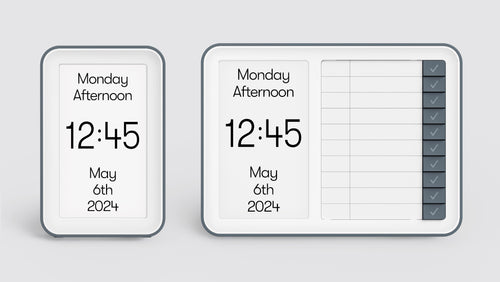Communication is a fundamental part of our society and how we have got here today. Without quality communication we would not have the road network we have nor the food in the supermarkets. We are constantly relying on it to get us what we need and where we need to be.
However, our understanding of how successful communication is achieved, in some circumstances differs, in accordance to the social situation. One of these situations, where an appropriate method of communication may need to be applied, may arise with two people living with dementia. We have put some ideas together on how positive communication can be achieved between two people living with dementia.
Communication
At every stage of dementia, communication is possible. Communication is often only thought of as speech, but non-verbal behaviours also carry meaning and are essential to consider.
- Giving plenty of positive encouragement when people are trying to communicate a message is important and matching your body language with your tone of voice and expression can help to show this.
- Levels of communication can vary from day to day, so try to develop strategies that can help you to cope with the ‘bad’ days and notice activities/ways of communicating that can keep limit frustration.
- Look for signals and clues in speech and movement to interpret what someone is trying to say.
- Use activities and prompts to help to encourage communication between people living with dementia. Cards, books and films can act as a way of stimulating conversation and help people to say what they want to by using prompts.
- Focus on topics of conversation that you know are easier for people living with dementia to speak about with an increased level of clarity. Asking about topics that are unfamiliar can cause confusion and frustration, so sticking to safe topics is recommended. Using certain positive memories from the past can help to affirm people’s identity and make them feel more confident in conversation.
- Try to minimise outside factors and other stimulus that may distract from conversation and cause noise. This can mean that it is difficult for people with dementia to focus on conversation if there are lots of other things going on.
- Speak to people with dementia with respect and dignity. If you try to speak in a patronising way then this can offend someone. Facilitating conversations between people with dementia can be difficult but if you remain patient then positive results are possible.
- Being positive and bringing humour into conversations is a good way to make someone feel at ease and more relaxed in a conversation. If someone feels pressurised to get something right then they may get confused and stumble over their words.
- Break down more complex sentences to help someone understand what you or someone else with dementia is trying to say. Making a sentence more manageable by focusing on key words can help. Asking questions that require simple ‘yes’ or ‘no’ answers is also a good way to limit confusion.
- Using paper and a pen to help people to write down what they want to say if they have trouble with speech can help empower people living with dementia. It can be easier for someone to gather their thoughts and communicate through writing. Finding ways to enable someone to express themselves is really important.
It is important to assess the specific needs of someone living with dementia and what stage they are going through. Using appropriate strategies will help you to limit confusion and avoid offending someone or patronising them with actions you take to encourage communication. It is important to use techniques that are suitable, as not every piece of advice will be effective for every person who is living with dementia.















